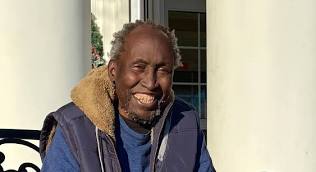Prominent Nigerian authors have paid tribute to the renowned Kenyan scholar and writer, Ngugi wa Thiong’o, who passed away on Wednesday.
The late author died at 87. He was a prolific writer of novels, plays, short stories, and essays that critiqued colonialism and explored Africa’s socio-political landscape.
His death was announced on Facebook by his daughter, Wanjiku wa Ngugi, who said her father “lived a full life, fought a good fight.”
“It is with a heavy heart that we announce the passing of our dad, Ngũgĩ wa Thiong’o. As was his last wish, let’s celebrate his life and his work. Rîa ratha na rîa thŭa. Tŭrî aira!”—a Gikuyu phrase loosely translating to “With joy and sorrow. We are proud,” her statement partly read.
READ ALSO: UTME 2025: Despite resit, over 1.3 million candidates score below 200
She added that plans for the titan of modern African literature burial would be announced by the family in the coming days.
Ngugi wa Thiong’o’s legacy
The late author’s impact on African literature is immeasurable. His notable works include: “Weep Not, Child, The River Between, Petals of Blood, Wizard of the Crow, The Black Hermit, Decolonising the Mind” and many more.
Aside from taking a bold decision to switch from writing in English to his native Gikuyu language, his works inspired thought, ensuring his lasting legacy in the literary world.
His works also explored the enduring impacts of colonialism on African societies alongside notable authors like late Chinua Achebe and Wole Soyinka.
Tributes
Many Nigerian authors have paid tribute to the late writer, acknowledging his impact on African literature. While his death marks the end of an era, his legacy will continue to inspire generations of writers in Africa.
Reacting to Ngugi wa Thiongo’s death, Chima Anyadike, a retired professor at the Department of English, Obafemi Awolowo University, Ile-Ife, said the late writer and a few others thoroughly understood what the real problems of Africa are in the areas of language, imperial exploitation through religion, social inequalities, showing through their lifetime struggles that “unless these deeply entrenched mental structures are effectively dismantled by Africans themselves they will continue to be under the stranglehold of puppets of all manner of Imperial schemes.”
“Will the coming generations of Africans be inspired by the great work they have done in the fields so that these grains become rejuvenated and take on new lives that will help Africans to liberate themselves? Time will tell. May Ngugi’s soul receive eternal transformation in the ancestral realm,” Anyadike wrote in a message to DevReporting.
On his part, Ademola Adesola, an assistant professor at the Department of English, Languages, Cultures, Mount Royal University and author of many books, said Ngugi wa Thiong’o fare thee well.
“Thank you for the strength, clarity, and robustness of your polemics. Your candor, contradiction, and controversy challenge the mind. Your valiant and just salvos against colonialism, capitalism, imperialism, and the phoniness of post-independence governance remind us of the unfinished task at hand. One celebrates your contentious defence of language and culture. Your oeuvre is an inexhaustible mine of ideas.
“I recall that as an undergraduate in the Department of English and Literary Studies, Obafemi Awolowo University, Nigeria, I greedily immersed myself in nearly everything from Ngugi’s pen. That full immersion culminated in my final-year long essay project— “Socialist Realism and the African Novel: An Examination of Ngugi wa Thiong’o’s ‘Wizard of the Crow’” The project was supervised by a dyed-in-the-wool Ngugi fan and scholar, Prof. Chijioke Uwasomba. May Ngugi’s family, associates, and admirers have the fortitude to bear this passing. Looking forward to some of the celebrations to come,” he wrote.
More accolades
Similarly, Chijioke Uwasomba, another respected author and professor at the Department of English, Obafemi Awolowo University, Ile-Ife, also paid tribute to the late scholar, saying “a leading voice in the search for the reclamation of Africa and its peoples has left, leaving a void and it’s a pity that those pimping for imperialism are becoming more brazen, emboldened and taking over important and strategic places in their unpardonable unpatriotic exploits against the teeming masses. May Ngugi’s strident voice and restless spirit remain ever green as they hunt the rascals in power to their eternal damnation.”
Another retired professor and author, Segun Adekoya said: “May the soul of the late Ngugi wá Thiong’o find eternal bliss and rest from the turbulence and turmoil of the world of carnal desires, pain, strife, and toil. May the slumbering spirit of Africa wake up and struggle for realiaation of his dream of liberation from all forms of oppression.”
On his part, Wale Okediran, Secretary General of Pan African Writers Association, said the sudden news of the passing of Ngugi Wa Thingo has left a deep vacuum in the African Literary landscape.
“Apart from his contributions to global and African Literature through his various literary interventions, Ngugi Wa Thiongo was also a well known champion of Literature written in Indigenous African Languages,” he told DevReporting.
He added that in accordance with his family’s admonition that his passage should be celebrated, the Pan African Writers Association will announce a Literature Prize to be awarded to African Writers writing in Indigenous African Languages.

